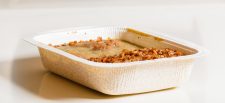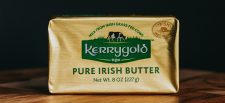Exports of all UK food grew to £5.9 billion in the third quarter of 2017, up 14.7% on 2016, representing 11% growth to £16.1 billion from January to September 2017 year-to-date, compared to 2016, according to the Food and Drink Federation’s (FDF) Exports Snapshot.
The third quarter’s export growth to non-EU markets was also increased by 18.2%, out-performing that to EU markets, up 12.5%, raising the non-EU share of exports to 41.2%.
Cream, butter, spreads and vegetable oils were the country’s top three fastest growing export products for the aforementioned period.
The five fastest growing export markets by value on year-to-date 2017 were the Philippines, up 289%, Latvia, up 116%, Iceland, up 73.2%, South Korea, up 55% and Romania, up 48%.
The surge in growth to the Philippines was led by higher demand for pork (85%), cheese (1608%) and salmon (226%), while exports to Latvia more than doubled from £60 million to £129 million, driven by sales of fish fillets (125%).
In addition, exports of branded goods saw growth of 12.7% to £4.3 billion on year-to-date 2017, demonstrating “strong progress towards achieving FDF’s branded export ambition ahead of schedule”.
More specifically, from January to September, Ireland, France and the United States remained the top three destinations for UK food and drink in terms of overall value.
The US remains the UK’s top non-EU market for exports of food and drink, reaching £1.6 billion, up 7.7%.
Growth was reported in all top 20 markets during that time period, apart from Spain, which saw a 7.1% decrease due to reduced sales of barley and wheat – down 78%.
Ian Wright CBE, director general, FDF, commented: “The continued growth of food and drink exports demonstrates the strength of UK production in international markets.
“Exports to non-EU markets did outperform those to EU markets in the last quarter but the EU remains our number one trading partner. With fewer than one in five food and drink manufacturers exporting, it is vital that we continue to work closely with Government in order to take advantage of the opportunities to sell Great British and Northern Irish food and drink abroad.”









